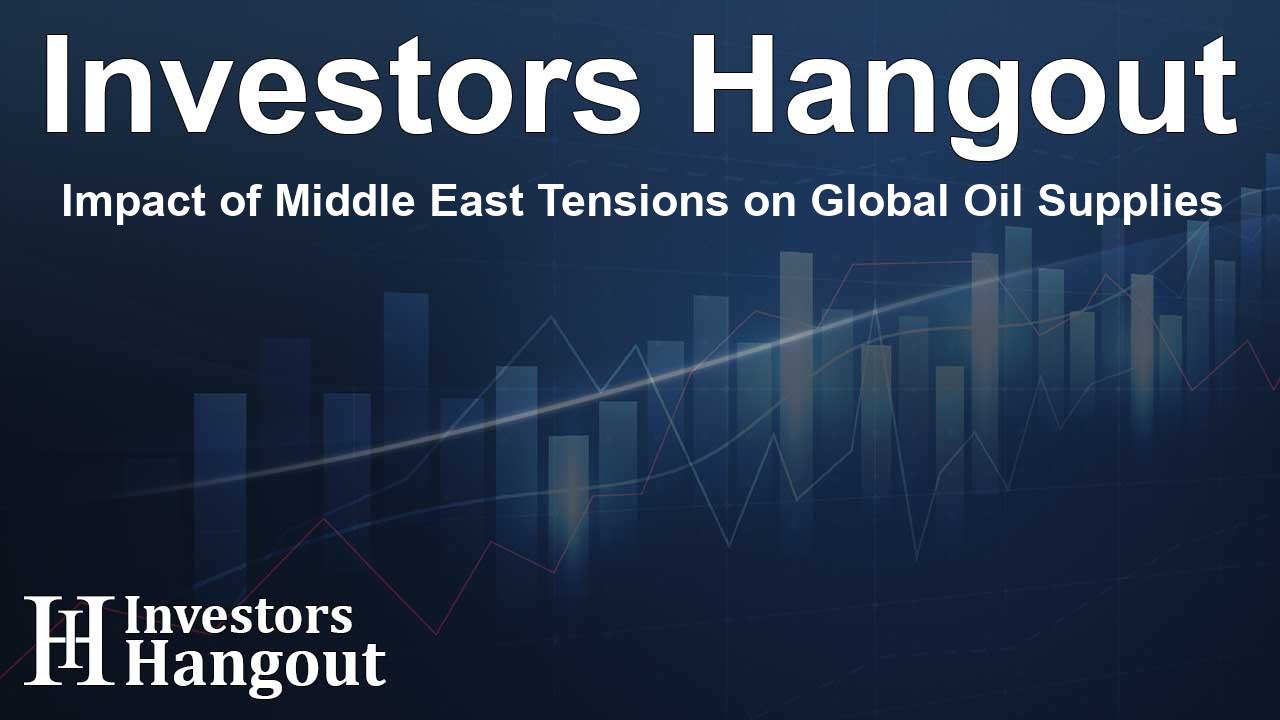Impact of Middle East Tensions on Global Oil Supplies

Understanding the Current Oil Market Dynamics
The current state of the oil market has come under the spotlight, particularly with rising prices influenced by geopolitical tensions. Recent comments from Russian Deputy Prime Minister Alexander Novak shed light on how these conflicts can create uncertainty around oil supply.
Oil Prices and Geopolitical Tensions
Following a meeting of top OPEC+ ministers, which maintained the existing oil output policies, Novak noted a notable shift in oil prices. Prices, which had previously dipped below $70 a barrel in September 2021, have seen a significant rebound, currently surpassing $75 due to concerns regarding military actions in the Middle East.
Market Reactions to Supply Concerns
As Novak pointed out, the market's reaction is heavily influenced by the uncertainty surrounding potential supply disruptions caused by conflicts or military engagements. This reactive behavior underlines a critical aspect of trading in commodities like oil, where geopolitical affairs play a pivotal role.
OPEC+ Policies and Future Outlook
Despite ongoing conflicts, OPEC+ has decided to keep oil production stable for now, allowing for an increase in output projected for December. This decision reflects a calculated approach to balancing supply amid fluctuating global demand.
Investors' Perspectives
Investors are keenly aware of the implications of the Middle East conflict on oil supplies. As the situation develops, market participants are undoubtedly placing bets on future price changes, showing a wariness to commit fully as they navigate these uncertain waters.
Conclusion: The Broader Impact on Oil Markets
The impact of geopolitical factors, particularly those emerging from the Middle East, is a crucial consideration for traders and policymakers alike. As the situation evolves, ongoing monitoring of oil market dynamics will be essential in understanding potential price movements and supply challenges.
Frequently Asked Questions
What has caused the recent rise in oil prices?
The rise in oil prices is largely attributed to concerns over potential supply disruptions due to conflicts in the Middle East, specifically military actions affecting the region.
Who is Alexander Novak?
Alexander Novak is the Deputy Prime Minister of Russia, responsible for overseeing the country's energy policies and representing Russia in international energy discussions.
What is OPEC+?
OPEC+ is a coalition of oil-producing countries, including members of the Organization of the Petroleum Exporting Countries (OPEC) and other major oil producers, working together to manage oil production levels and stabilize prices.
How do geopolitical events affect oil prices?
Geopolitical events can create uncertainty in the oil market, leading to fears of supply disruptions, which in turn can cause prices to rise as traders react to potential changes in availability.
What are the projections for oil production in the coming months?
Currently, OPEC+ has decided to maintain production levels, with plans to gradually increase output starting in December, depending on market conditions and geopolitical developments.
About Investors Hangout
Investors Hangout is a leading online stock forum for financial discussion and learning, offering a wide range of free tools and resources. It draws in traders of all levels, who exchange market knowledge, investigate trading tactics, and keep an eye on industry developments in real time. Featuring financial articles, stock message boards, quotes, charts, company profiles, and live news updates. Through cooperative learning and a wealth of informational resources, it helps users from novices creating their first portfolios to experts honing their techniques. Join Investors Hangout today: https://investorshangout.com/
Disclaimer: The content of this article is solely for general informational purposes only; it does not represent legal, financial, or investment advice. Investors Hangout does not offer financial advice; the author is not a licensed financial advisor. Consult a qualified advisor before making any financial or investment decisions based on this article. The author's interpretation of publicly available data shapes the opinions presented here; as a result, they should not be taken as advice to purchase, sell, or hold any securities mentioned or any other investments. The author does not guarantee the accuracy, completeness, or timeliness of any material, providing it "as is." Information and market conditions may change; past performance is not indicative of future outcomes. If any of the material offered here is inaccurate, please contact us for corrections.